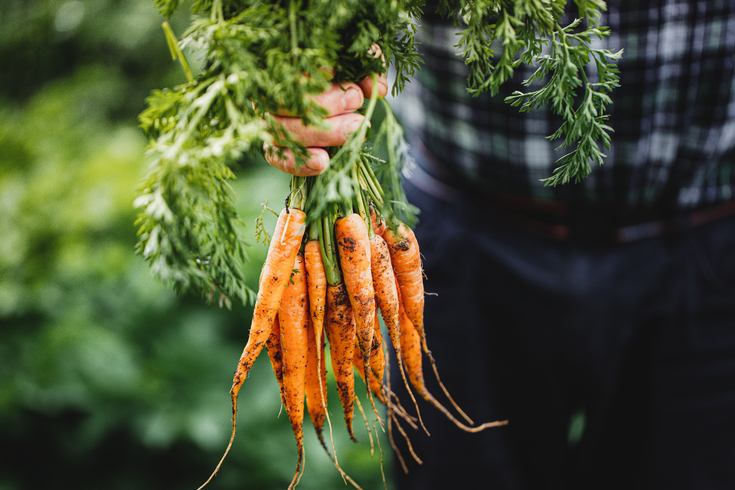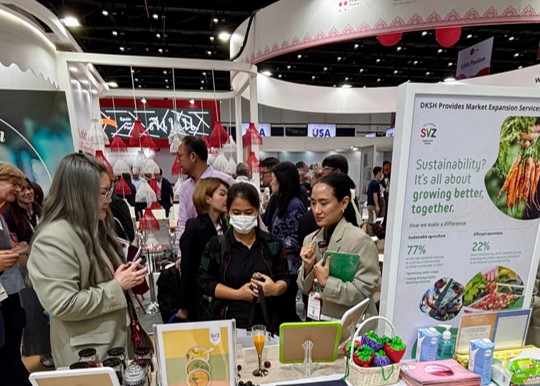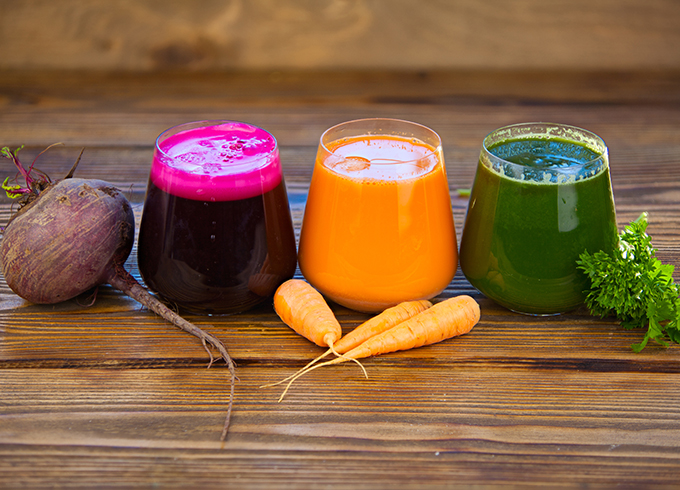Chain reaction: Why responsible sourcing matters more than ever in food and beverage production

Responsible sourcing: two seemingly simple words with a whole lot of significance for food and beverage brands. Call it what you want – roots, providence, origins, etc. – where ingredients come from has always mattered to consumers. Almost three decades ago, researchers in the UK highlighted geographical associations as one of the most important factors underpinning food choices.[1] In fact, shoppers in the late 1990s saw claims like ‘local sourcing’ or ‘locally grown’ as a way to reconcile an increasingly globalised food supply chain with the intimate spaces of ‘home’ and ‘body’ where the products were ultimately enjoyed.[2]
This idea of sourcing is not just important, but also personal, laid the foundations for the modern preoccupation with sourcing and sustainability. Today, the heightened awareness is not just about where a product was produced, but its environmental impact from farm to fork. Consumers have heard the headlines and seen the statistics stating that food and beverage manufacturing accounts for over a third of global greenhouse gas emissions, and they will no longer accept hollow promises from brands to ‘do better’ for the planet.[3] Major players like Danone and Innocent Drinks have already taken the imperative for action to heart with ambitious sustainability targets for sustainability, but enacting systemic change will mean turning this intention into impactful action with an industry-wide commitment to making sustainable sourcing second nature.
So, what exactly makes an ingredient sustainable and what do brands have to gain by making responsible sourcing central to their operations? Let’s explore:
Why consumers care about responsible sourcing
Awareness around climate change, biodiversity loss, and social inequality has pushed sustainability to the top of the consumer agenda. Research shows that while taste and price still dominate purchase decisions, more and more shoppers are gravitating toward products labelled as natural, organic, or sustainably produced.[4],[5] Transparency matters too: almost two-thirds of consumers say they would switch to a brand that provides more in-depth information about its sourcing and sustainability efforts.[6]
For brands, this means environmental responsibility isn’t just a “nice-to-have” – it’s an expectation. Failing to prove sustainable and traceable sourcing risks losing consumer trust, damaging brand reputation, and missing out on market opportunities.
But more than that, responsible sourcing underpins long-term business resilience. By embedding sustainability into supply chains, food and beverage companies are not only meeting consumer demand but also managing critical risks linked to climate change, resource scarcity, and shifting regulations. In other words: sustainability is not fluff. It’s the foundation for maintaining a license to operate and ensuring a stable, secure future for the industry.
What makes an ingredient sustainable?
Sustainability in fruit and vegetable ingredient sourcing touches every stage of the journey – from the farm to the production site and beyond. Key criteria here include:
- Supply chain traceability
- Fair and profitable pricing for growers
- Ethical treatment of workers
- Carbon emission reductions
- Biodiversity initiatives
- Water conservation
- Energy efficiency
- Waste reduction
On a fundamental level, supply chain transparency ensures ingredients can be tracked from field to finished product, guarding against damaging associations such as water pollution, deforestation, or unethical labour practices. As a first step, farmers must be fairly compensated to ensure they can cover costs and – crucially – invest in more environmentally sound growing practices. At SVZ, our agronomist teams make it a mission to foster close relationships with our partner farms, not only to secure a resilient supply of quality crops but also to support growers to boost their livelihoods even while making operations more sustainable. Moving from field to factory, responsible sourcing equally means securing safe working conditions, fair wages, and zero tolerance for exploitation.
Then, of course, comes the ‘environmental’ portion of ‘environmental responsibility’. Biodiversity initiatives such as promoting habitats for pollinators, planting wildflowers, or testing compostable mulching are crucial aspects of responsible sourcing, as are water- and soil-conservation measures aimed at reducing strain on natural resources. On a more macro scale too, transitioning to renewable energy sources, recovering heat from processing to be used elsewhere, and generally reducing carbon emissions are all essential parts of the sustainability picture.
So, now that we’ve established the ‘what’ of responsible sourcing – it’s time to turn to the ‘why’.
The value for food and beverage brands
Opting for responsibly sourced, traceable ingredients pays off in more ways than one. First, and most obviously, it can help improve product quality. Sustainable farming practices nurture soil health and biodiversity, often resulting in higher quality fruits and vegetables with better flavour and nutritional value.
The impact on consumer trust and loyalty can also be transformative, with transparent sourcing backed by credible certifications giving brands the proof points they need to win over increasingly sceptical shoppers. As tighter regulations like the EU Deforestation Regulation (EUDR) and the Corporate Sustainability Reporting Directive (CSRD) make their mark, traceable sourcing also helps protect brands from the risks of regulatory non-compliance. And ultimately, beyond any business considerations responsible sourcing is a moral imperative. Large or small, food producers have an ethical duty to ensure the well-being of people and planet. Choosing responsible suppliers is a tangible way to live up to this essential responsibility.
Collaboration is key
One of the biggest challenges facing the food and beverage sector is fragmentation. Too often, individual companies pursue their own sustainability frameworks in isolation, placing additional pressure on growers who must meet different, sometimes conflicting certification requirements. The solution? Industry-wide collaboration. systemic evolution.
As our Farmers Fund Brochure highlights, supporting growers with practical tools, training, and funding is vital to aligning the entire supply chain. That can mean helping Polish farmers achieve SAI FSA certification, trialling compostable mulching materials in Spain to cut plastic waste, or investing in smart irrigation systems to boost water efficiency. Farmers, ingredient suppliers, brands, and regulators must work together to scale up these kinds of initiatives, streamline standards, and share best practices. Only by collaborating can the sector move beyond ‘siloed’ initiatives and deliver systemic, long-term change.
How SVZ is modelling the change
As a global supplier of responsibly sourced fruit and vegetable ingredients, we embed sustainability at the core of all our operations. Just some of our current and ongoing projects include year-round farmer training programs, boosting biodiversity with bee hotels in Belgium and biodegradable mulching trials in Spain, cutting carbon emissions through initiatives like installing a new pasteurizer that reduces energy use and CO₂ emissions by 22%, lowering water use and ensuring ethical, diverse and inclusive working conditions for every member of our team, from seasonal workers to factory operatives and office staff.
But just because it’s the core of everything we do, doesn’t mean sustainability needs to stay a background force. With a subject as important and complex as environmental responsibility, there can be a temptation to wait and keep projects on the ‘down-low’ until they have achieved definitive success. For us however, openly and diligently pursuing progress even at the expense of perfection, is the point. We strive to do a little better every day, adapting where needed but always pushing ahead, because there simply is not time to waste when it comes to securing a safe and healthy future for all.
Looking ahead: Partnering through the Farmers Fund
SVZ’s sustainable ambitions extend far beyond our own operations. Through our Farmers Fund, we are inviting the entire food and beverage sector to join forces on projects that directly support farmers and strengthen supply chain resilience. The initiative provides a platform for shared investment and innovation, ensuring growers have the resources and expertise they need to adapt to future challenges.
By working hand-in-hand with farmers, brands, and partners, SVZ aims to model the change it wants to see — and empower the industry to build a resilient, responsible food and beverage supply chain that benefits everyone.
We are always looking for new partners to collaborate with and expand our sustainability projects. And with time of the essence for the planet, the moment to act is now.
Contact our sustainability manager to explore the Farmers Fund and discuss partnership opportunities: Kati Hermann, [email protected]
Connecting the dots
Sustainable and responsible sourcing is a business imperative, plain and simple. Consumers expect it, regulators demand it, and the planet depends on it. For food and beverage brands, the opportunity lies in choosing suppliers who not only deliver high-quality ingredients but also prioritise people, planet, and transparency.
For us the message is clear: good in = good out. And with collaboration, innovation, and commitment, the industry can create a greener, fairer, and more resilient food system – one fruit and vegetable ingredient at a time.
[1] Cook, I., Crang, P., & Thorpe, M. (1998). Biographies and geographies: consumer understandings of the origins of foods. British Food Journal, 100, 162-167. https://doi.org/10.1108/00070709810207522.
[2] Cook, I., Crang, P., & Thorpe, M. (1998). Biographies and geographies: consumer understandings of the origins of foods. British Food Journal, 100, 162-167. https://doi.org/10.1108/00070709810207522.
[3] Crippa, M., Solazzo, E., Guizzardi, D. et al., “Food systems are responsible for a third of global anthropogenic GHG emissions” Nat Food 2, 198–209, 2021. https://doi.org/10.1038/s43016-021-00225-9
[4] Tate, K., Bassett, A., Johnson, S., Petersen, K., & Toner, C. (2024). Abstract P483: Food Purchase Priorities and Healthy Food Purchase Supports and Barriers for U.S. General and Low-Income Consumers: A Quantitative Survey. Circulation. https://doi.org/10.1161/circ.149.suppl_1.p483.
[5] Van Bussel, L., Kuijsten, A., Mars, M., & Van ‘t Veer, P. (2022). Consumers’ perceptions on food-related sustainability: A systematic review. Journal of Cleaner Production. https://doi.org/10.1016/j.jclepro.2022.130904.
[6] Consumer demand for food transparency remains strong as ommnichannel rises – NIQ


